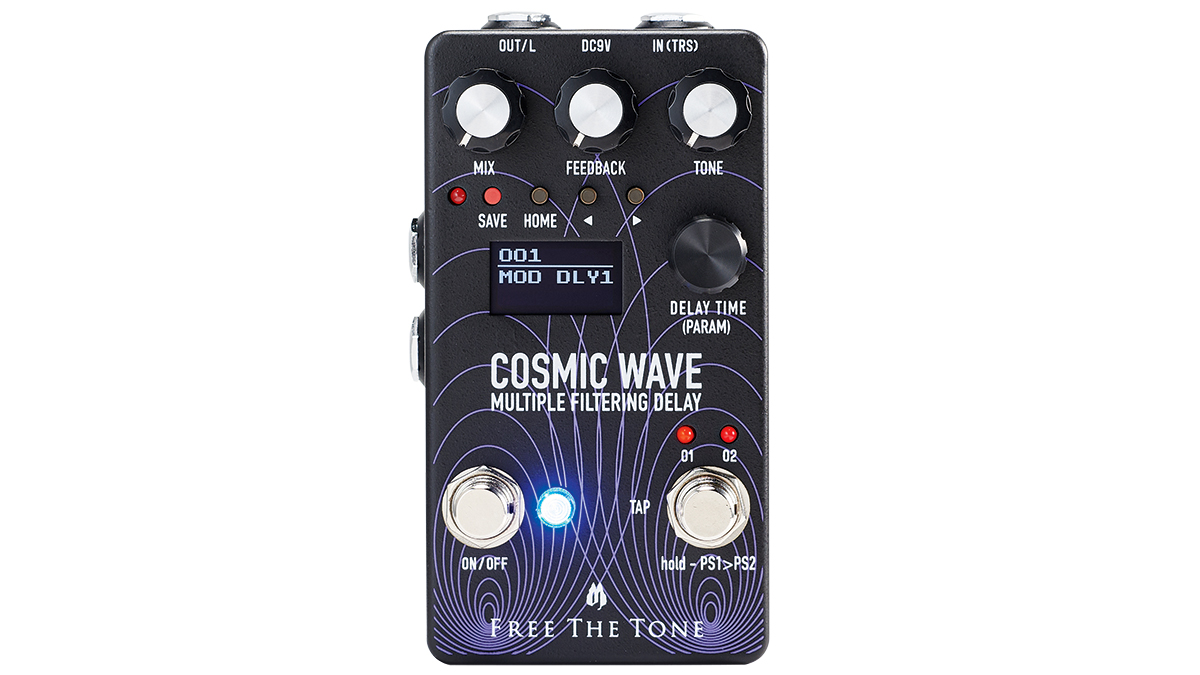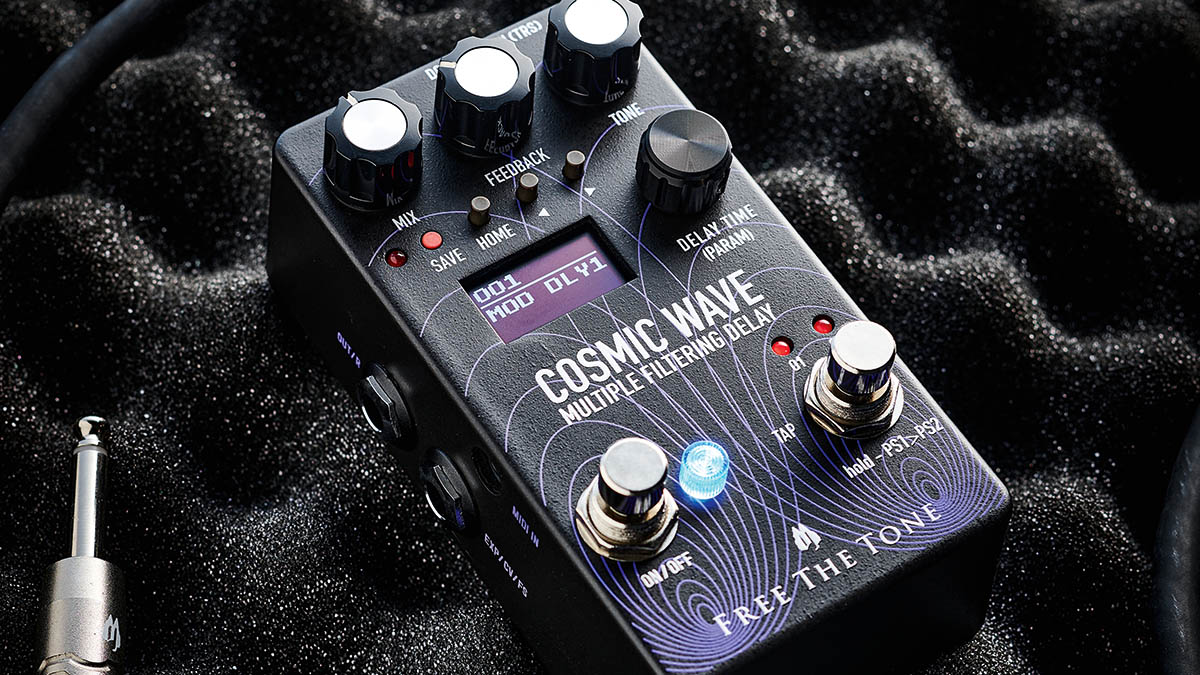Guitar World Verdict
If you want the ultimate control over the sound of your repeats, this compact powerhouse will provide it. With delays from the traditional to the (yep) cosmic, this would be a versatile sonic asset for any pedalboard.
Pros
- +
Compact size.
- +
Myriad parameters to adjust.
- +
Presets.
- +
Tap tempo.
Cons
- -
No issues, but it may not be for you if want something that’s more ‘plug in and play’.
You can trust Guitar World
The Cosmic Wave retains the sound quality of Free The Tone’s Flight Time and Future Factory delays but in a much more compact pedal. Despite its small footprint, though, it still manages to fit in a pair of footswitches plus mono and stereo operation, and MIDI and expression pedal inputs.
What you’re getting is a pedal with pretty comprehensive control over the character of its repeats via the application of multiple filter functions.
While the top three knobs may seem to be standard for a delay pedal, controlling Dry/Wet Mix, Feedback and Tone, they can each adjust two further parameters (mainly relating to modulation and EQ) when the relevant operation screens are called up by the Home switch.
The Delay Time knob does even more: besides adjusting its three parameters in the operation screens, it scrolls through the 128 onboard preset slots and also adjusts any of the potent sound-shaping functions called up via the cursor buttons.
At its most conventional you can get pristine digital delays with repeats identical to the dry sound. But that’s simply the starting point – there’s plenty of EQ that can be applied to tweak the tonal component of the repeats and there’s a wide range of modulation from a bit of tape-delay wobble through lush chorus to really OTT stuff.
Beyond that, you can shake things up further by bringing in as many of the special functions as desired. You can get into crusty Lo-Fi areas by adjusting the number of bits in the delay sound over a range from 24 to eight in 1-bit units and you can apply a Bandpass filter with a choice of five frequency ranges.
The Reverse delay function can deliver deliciously smooth psych effects if you select it without any dry sound. But the Cosmic function may be the most unique feature with its choice of five different filter settings making consecutive repeats in the trail get progressively weirder.
All the latest guitar news, interviews, lessons, reviews, deals and more, direct to your inbox!
For performance, there’s footswitch access to two presets, tap tempo, the ability to assign a range of functions to an expression pedal or momentary footswitch, plus MIDI for parameter change or preset recall.

Spec
- PRICE: $318/£279
- ORIGIN: Japan
- TYPE: Delay pedal
- FEATURES: Buffered bypass, 128 user presets, 11 factory-programmed presets, kill dry function, trails on/off function, delay phase inversion
- CONTROLS: Mix, Feedback, Tone, Delay Time (Param), 4x Buttons (Save, Home, Cursor L, Cursor R), Bypass footswitch, Tap footswitch
- CONNECTIONS: Standard input (TRS), standard output L, standard output R, standard EXP/CV/FS input, MIDI In
- POWER: 9V battery or 9V DC adaptor (not supplied) 185 mA
- DIMENSIONS: 66 (w) x 125 (d) x 54mm (h)
- CONTACT: Free The Tone
Trevor Curwen has played guitar for several decades – he's also mimed it on the UK's Top of the Pops. Much of his working life, though, has been spent behind the mixing desk, during which time he has built up a solid collection of the guitars, amps and pedals needed to cover just about any studio session. He writes pedal reviews for Guitarist and has contributed to Total Guitar, MusicRadar and Future Music among others.


